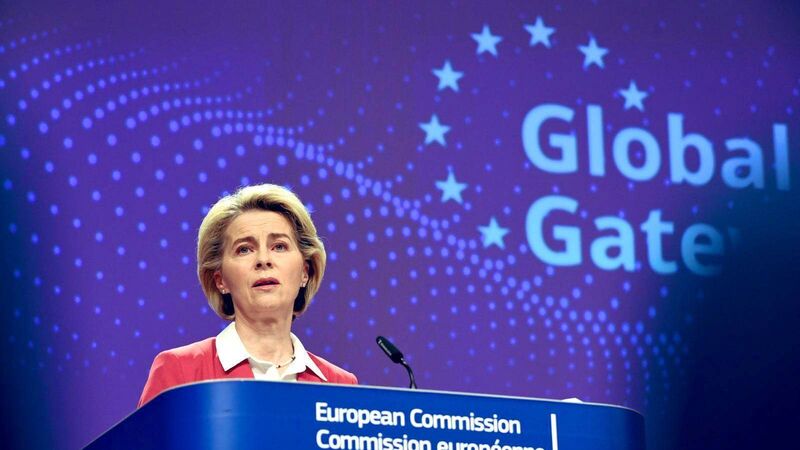Andrew Hammond: Why Europe’s eyes are on Africa

European Commission president Ursula von der Leyen announcing the Global Gateway strategy to boost technology and public services in developing countries. The major EU African Union summit takes place in Brussels on Thursday and Friday. Picture: Eyepress/Reuters
This week’s big announcement, the highlight of the Europe-Africa summit which starts on Thursday, will see the Brussels-based club kickstart the first Global Gateway regional plan mobilising up to €300bn for public and private infrastructure around the world by 2027. Half of this money is intended for Africa with European Commission president Ursula von der Leyen intending to proclaim the EU-27 to be the continent’s “most reliable” global partner.










